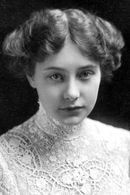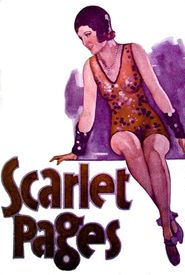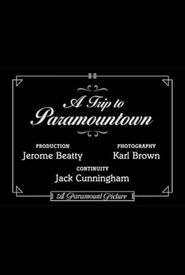Here is the biography of Elsie Louise Ferguson:
Elsie Louise Ferguson was a renowned American actress of the silent film era and a prominent stage actress of the early 20th century. Born on August 19, 1883, in New York City, she was the only child of prominent lawyer Hiram Benson Ferguson and his wife. Her father's wealth provided her with a privileged childhood, during which she developed a penchant for socialism in her late thirties.
Ferguson began her theatrical career as a chorus girl in the musical comedy "The Belle of New York" at the Madison Square Theatre in 1900. She worked her way up from the chorus to become a Broadway star for three decades, making her debut in the musical "The Girl from Kay's" at the Herald Square Theatre in 1903. Between 1904 and 1906, she appeared in various plays, including "The Second Fiddle" and "Miss Dolly Dollars."
In 1906, Ferguson became embroiled in a scandal surrounding the murder of architect Stanford White by Harry K. Thaw, the husband of her friend Evelyn Nesbitt. The press dragged Ferguson into the scandal, revealing that she had known about Nesbitt's affair with White. To avoid being subpoenaed as a witness and generating more bad publicity, Ferguson accepted an offer to appear in "The Earl of Pawtucket" at the London Playhouse in England, which proved to be a hit.
Returning to the United States, Ferguson continued her stage career, appearing in melodramas such as "Pierre of the Plains" and "Such a Little Queen." In 1916, she played Portia opposite Shylock in a production of "The Merchant of Venice" and later appeared as the eponymous heroine of "Shirley Kaye."
In 1917, Ferguson began her film career with Paramount-Artcraft, starring in "Barbary Sheep" and later appearing in "The Rise of Jenny Cushing" and "Rose of the World." She worked with director Maurice Tourneur, who praised her talent and predicted she would become a major star. Ferguson's film career was marked by a string of successes, including "Forever" and "Outcast," which were both big hits.
Ferguson's personal life was marked by three marriages: to businessman Frederick C. Hoey, bank executive Thomas Clarke, Jr., and British stage actor Frederick Worlock. She retired from acting in the late 1920s and spent her later years on a farm in Connecticut and a home in France. Her husband, Victor Augustus Seymour Egan, died in 1956, and Ferguson passed away on November 15, 1961, at the age of 78, leaving behind a legacy as one of the most talented actresses of the silent film era.



















